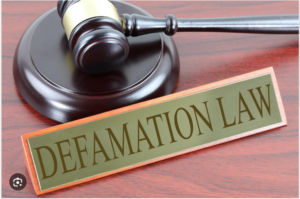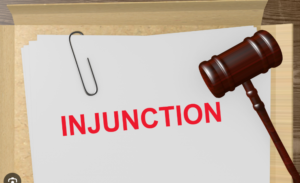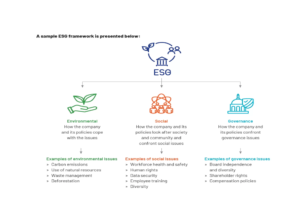
What is Intellectual Property?
Intellectual property (IP) refers to the creations of the mind, such as inventions; literary and artistic works; designs; and symbols, names, and images used in commerce. There is not one law that protects Intellectual Property collectively. Therefore, for all the forms or types of intellectual property, there is a law that protects them. For example, patents, copyrights, and trademark laws enable people to earn recognition or financial benefit from what they invent or create. Intellectual property is a broad term used for a category of intangible creations or tangible assets of the human intellect that are owned and legally protected by company(s) or individual(s) from outside use or implementation without the owner’s consent. Infringement on intellectual property occurs when a person engages in the unauthorized use of an intangible creation or a tangible asset. The legal protection that affords most intellectual properties expires after some time but may last forever for others. Producing intellectual property requires a great deal of brainpower, time, financial resources, and skill, and therefore, it should not be accessed without the consent of the owner(s).
Types of intellectual property
Patents
A patent is the granting of an exclusive right for an invention. The grant provides the patent owner or inventor with the protection he or she requires to protect the invention and enables the patent owner or inventor to make public technical information about the invention in the published patent document. The Patents Act, 2003 (Act 657) protects inventors in Ghana.
Copyright
Copyright is a legal right that creators have over their literary and artistic works. It also means that only the original creators of the works and anyone they authorize can reproduce their literary and artistic works. Examples of works covered by copyright are books, music, paintings, sculptures and films, computer programs, databases, advertisements, maps, and technical drawings. The Copyright Act, 2005 (Act 690) protects creators within the literary and artistic industry in Ghana. In the case of CHARLES UCHE AYIKA AND CHINEDU SAMUEL UGOCHUKWU vs. MR. KWESI TWUM AND MULTIMEDIA GROUP LTD. [COURT OF APPEAL (CIVIL DIVISION), ACCRA] APPEALNO.HI/235/2018 DATE: 11TH JULY 2019. The Appellants, Charles Uche Ayiku and Chinedu Samuel Ugochukwu are the owners of the copyright in the cinematograph film entitled “Arrows of Love” Parts 1 & 2. The Appellants granted the right to market the film to a Nigerian Company called Chiddo Productions Ltd. on a contract valued at N200,000,000.00 whereas Rich Investment Company Ltd. had the exclusive license to market and distribute the English version of the film. It is the case of the Appellants that, before four million copies of the film could be supplied, the Respondents, Mr Kwesi Twum and Multimedia Group Ltd had without license from the Appellants commenced transmission of the said film worldwide on their digital television system.
The court held that in every action for infringement of copyright, proof of actual damage is not necessary. Damages indeed are said to be at large. In awarding damages for infringement of copyright, the court ought to consider (i) the flagrancy of the infringement and (ii) any benefit shown to have accrued to the Defendant because of the infringement. See; WILLIAMS VS. SETTLE [1960] 2 AII ER.806. Therefore, in awarding damages, the court must take into consideration the flagrant way the Plaintiff’s work was infringed and the apathetic and nonchalant manner in which the Defendant will respond to any notice of the infringement. Where the Defendant’s conduct is motivated by glitters of profit in the infringement of the copyright or is found to be intoxicated by the motivation for that profit, then the award of damages ought to be higher and sufficiently compensable to the Plaintiff.
The court further indicated that the infringement of copyright is actionable per se and compensatory damages in a general nature will be the natural consequence, the evidence of the claim for loss contract suffered by the Appellants even in the failure to prove specifically the claim for N200,000,000.00 and N15,000,000.00 respectively as special damages, the quantum of award in the sum of Ghc100,000.00 in the peculiar circumstances of this case is woefully inadequate. The court enhanced the award by adding a sum of Ghc150,000.00 for the undisputed conduct of infringement by the 2nd Respondent which the Trial Court found as flagrant and brazen only because of an assurance the Respondents claim to have had from a business partner Victor Emeghara of O’Hara Productions without proper due diligence.
It is worth noting that an award of damages is to adequately compensate or to restore a person who has suffered an infringement on its product to the financial position they would have been in if the infringement had not occurred.
Trademarks
A trademark is a sign a distinctive word or a combination of both capable of distinguishing the goods or services of one enterprise or producer from those of other enterprises or producers. Section 10 of the Protection Against Unfair Competition Act 2000, Act 589 defines trademark as marks relating to goods, marks relating to services, and marks relating to both goods and services. Trademarks date back to ancient times when artisans used to put their signature or “mark” on their products. It provides exclusive right to the enterprise or producer to use the trademark to identify goods or services or to authorize another to use the trademark in return for payment of royalty. The registration of a trademark is for ten (10) years and may be renewed for a consecutive period of ten (10) years. This right is protected by the Trademarks Act, 2004 (Act 664) in Ghana and Trademarks Regulations, 1970 (L.I 667).
Industrial designs
This refers to the visual features or the appearance of a product that can be legally protected by registering that design. Industrial design is also referred to as a “design patent” in the United States or a “design” in Europe. The registration of an industrial design protects the rights of the designer over the industrial design. The protection excludes others from making, using, selling, or importing any article, which includes the design elements set out in the design document. The industrial design protection protects the unique “look/appearance” of an article. An industrial design may consist of three-dimensional features, such as the shape or surface of an article, or of two-dimensional features, such as patterns, lines or color. The registration of the industrial design is for a limited period of five years which may be renewed for a further two consecutive periods of five years in Ghana. The duration of the registration may vary from one country to the other. The industrial design right may be sold or licensed to others. The Industrial Designs Act, 2003 (Act 660) protects industrial designs in Ghana.
Section 9 of Act 660. Section 9 states that:
(1) The exploitation of a registered industrial design by persons other than the registered owner shall require the consent of the owner.
(2) For the purposes of subsection (1), “exploitation” of a registered industrial design means the making, selling, importing, or otherwise distributing for commercial purposes, articles bearing or embodying a design which is a copy or substantially a copy of the industrial design.
(3) The rights conferred by registration do not apply to acts in respect of articles which have been put on the market in any country by the registered owner or with the registered owner’s consent.
(4) The registered owner may, in addition to any other rights, remedies or actions available under an enactment, institute court proceedings against a person who infringes the industrial design or who performs an act which makes it likely that infringement will occur.
Sections 23 and 24 of the Industrial Designs Act, 2003 (Act 660) also states that:
- An international treaty in respect of industrial property to which the country is a party is applicable to matters dealt with by this Act, and in the case of a conflict with a provision of this Act, the provisions of the international treaty shall prevail.
- An international application may designate Ghana for an industrial design under the Harare Protocol.
The Court, in OM SATNAM LTD vs. EBENEZER APPIAH & ANOR [HIGH COURT (COMMERCIAL DIVISION), ACCRA] SUITNO.CM/0123/16 DATE: 1ST NOVEMBER 2018 found that the Plaintiff in the case had its industrial design of a cube with holes running through it registered with the African Regional Intellectual Property Organization (ARIPO) of which Ghana is a member. As a result, it is eligible to enjoy the rights conferred by Section 9 of Act 660 as stated above. ARIPO is an inter-governmental organization (IGO) that facilitates cooperation among Member States in intellectual property matters. The objectives of the organization are to pool financial and human resources and to seek technological advancement for economic, social, scientific, and industrial development.
Trade Secrets
A trade secret is an intellectual property right on confidential information which may be sold or licensed. The acquisition, use, or disclosure of such secret information in a manner contrary to honest commercial practices by others is regarded as an unfair practice and a violation of the trade secret protection. Section 84 of the Right to Information Act 2019, Act 989 defines a trade secret as a secret formula or technique, process, program, device, or product known and used to the advantage of only one manufacturer and the disclosure of which would cause significant economic loss to the owner or manufacturer. Trade secrets protect confidential business information, which includes formulas, processes, and methods. There is no specific or limited period for trade secret protection, but the information must be kept confidential to maintain its protected status. The owner of a trade secret or a person authorized by the owner of a trade secret has the privilege to refuse to disclose and to prevent any other person from disclosing the trade secret unless the value of the disclosure of the trade secret substantially outweighs the disadvantages caused by its disclosure. In making his determination as to the existence or otherwise of the privilege the presiding officer shall consider whether the trade secret is adequately protected by patent, trademark, copyright, or other law and whether adequate protection can be provided by disclosure of the trade secret in chambers or any other appropriate manner. When disclosure of a trade secret is required, a court, on its own motion or at the request of any party, may take such actions to protect the trade secret from further disclosure or unauthorized usage as may be appropriate.
Geographical indications
Geographical indications and appellations of origin are signs/symbols used on goods that have a specific geographical origin and possess specific qualities, reputations, or characteristics that are essentially attributable to that place of origin. A geographical indication commonly includes the name of the place of origin of the goods.
In Ghana, the main intellectual property laws are the Copyright Act, 2005 (Act 690), the Trademarks Act, 2004 (Act 664), the Patents Act, 2003 (Act 657), the Industrial Designs Act, 2003 (Act 660), and the Protection Against Unfair Competition Act, 2000 (Act 589). There is no international Intellectual Property Law that will automatically protect intellectual property throughout the entire world. Protection against unauthorized use in a particular country depends on the national laws of that particular country. It is noteworthy that generally registration of Intellectual Property is based on a first-to-file or first-to-invent depending on the country. Similarly, registering trademarks is based on a first-to-file or first-to-use, depending on the country, so you should consider how to obtain patent and trademark protection before introducing your products or services to the Ghanaian market. However, being a member or signatory to an Intellectual property organization or convention may afford you some protection among those member countries. Ghana is signatory to several international conventions on Intellectual property which include the World Intellectual Property Organization (WIPO), and the African Regional Intellectual Property Organization (ARIPO), among others. The Harare Protocol and Implementing Regulations on Patents and Industrial Designs Within the Framework of the African Regional Intellectual Property Organization (ARIPO) as amended on November 25, 2022, offers extensive protection for its member countries. In the case of OM SATNAM LTD vs. EBENEZER APPIAH & ANOR [HIGH COURT (COMMERCIAL DIVISION), ACCRA] SUITNO.CM/0123/16 DATE: 1ST NOVEMBER 2018, the court found that the Defendants had infringed on Plaintiff’s industrial design based on Sections 23 and 24 of the Industrial Designs Act, 2003 (Act 660). An international treaty in respect of industrial property to which the country is a party applies to matters dealt with by this Act, and in the case of a conflict with a provision of this Act, the provisions of the international treaty shall prevail. An international application may designate Ghana for an industrial design under the Harare Protocol. As well as Section 9 of Act 660 which states that (1) The exploitation of a registered industrial design by persons other than the registered owner shall require the consent of the owner. (2) For the purposes of subsection (1), “exploitation” of a registered industrial design means the making, selling, importing, or otherwise distributing for commercial purposes, articles bearing or embodying a design which is a copy or substantially a copy of the industrial design. (3) The rights conferred by registration are not applicable to acts in respect of articles which have been put on the market in any country by the registered owner or with the registered owner’s consent. (4) The registered owner may, in addition to any other rights, remedies or actions available under an enactment, institute court proceedings against a person who infringes the industrial design or who performs an act that makes it likely that infringement will occur. In the case, the Defendants in their defence averred that they did not infringe the Plaintiff’s design as they did not manufacture the product. However, they admitted importing the product into the country which had the same design as that of the Plaintiff who had a valid registration of its industrial design AP/D/00149 with ARIPO.
In an intellectual property infringement of right case, an order for an injunction and damages are normally awarded to compensate or restitute the injured party. In the case of CHARLES UCHE AYIKA AND CHINEDU SAMUEL UGOCHUKWU vs. MR. KWESI TWUM AND MULTIMEDIA GROUP LTD. [COURT OF APPEAL (CIVIL DIVISION), ACCRA] APPEALNO.HI/235/2018 DATE: 11TH JULY 2019 The court stated that the most effective remedy in all intellectual property actions where a breach or infringement of rights has been established or is threatened is an order for injunction by the court. The court further indicated that in the absence of a permanent injunction, the owner of intellectual property rights is vulnerable to other breaches and infringements either from the same Defendant, his agents, and privies, or even third parties. The court again stated that in cases such as in the instant one, where the remedy of injunction is available by statute, principles, and precedents regulating the grant or refusal of injunction at common law are of no real value as they are discretionary. That is why at common law injunction orders like mareva or pillar are discretionary with the only overriding consideration being that it must be exercised judicially and judiciously in the interest of both parties in the action. In other words, if the remedy sought is at common law the grant or refusal ought not be capricious but by settled rules discernible from a myriad of decisions of the courts.
The Supreme Court distinguished between special and general damages in the case of DELMAS AGENCY GHANA LTD. VS. FOOD DISTRIBUTORS INTERNATIONAL LTD. [2007-2008] SCGLR 748. Where His Lordship held inter alia at page 759 that “special damages are distinct from general damages. General damages are such as the law will presume to be the natural or probable consequence of a Defendant’s act. It arises by inference of the law and therefore need not be proved by evidence. The law implies general damage in every infringement of an absolute right. The catch is that only nominal damages are awarded. Where the Plaintiff has suffered a properly quantifiable loss, he must plead specifically his loss and prove it strictly. If he does not, he is not entitled to anything unless general damages are also appropriate”. In the case of ROYAL DUTCH AIRLINES (KLM) VS. FARMEX [1989-1990] 2 GLR 623 at 63 SC the court held that “Special Damages must be specifically pleaded and specifically proved. However, the rule does not imply that if one claims general damages only, one cannot lead evidence of specific damages as a foundation for an award of general damages. After all, in deciding as to how much general damages to award, the Court needs some guidance as to financial loss”. The court also stated that on the measure of damages for breach of contract, the principle adopted by the courts was restitution in integrum, ie if the plaintiff has suffered damage not too remote, he must, as far as money could do it, be restored to the position he would have been in, had that particular damage not occurred. What was required to put the plaintiffs in the position they would have been in was sufficient money to compensate them for what they had lost”.
In the case of CHARLES UCHE AYIKA AND CHINEDU SAMUEL UGOCHUKWU vs. MR. KWESI TWUM AND MULTIMEDIA GROUP LTD. [COURT OF APPEAL (CIVIL DIVISION), ACCRA] APPEALNO.HI/235/2018 DATE: 11TH JULY 2019, the court opined that whereas the Appellants pleaded the particulars of special damages and sought reliefs in the quantum of N200,000,000.00 and N15,000,000.00 respectively, the Trial Judge was not impressed with the quality of evidence adduced to substantiate the said claims. They were rejected and in my view rightly so, as from an exhaustive examination of the evidence of the Appellants at the trial, they failed in my view to marshal enough credible evidence to discharge the statutory burden at the threshold. I accept the finding and conclusion of the Trial Judge concerning this head of claim, and the appeal on it is hereby dismissed.
The court continued on the premise that the Trial Judge found undisputed evidence of infringement on the part of the 2nd Respondent by their admission. Indeed, he described the 2nd Respondent’s conduct as “flagrant and brazen to say the least”. In an infringement action such as the one before us, particularly in this electronic age, the damage to a copyright holder is exponential and almost always immeasurable by the numbers who have without due recognition of the intellectual and economic rights of the holder infringed upon it in a “flagrant and brazen” manner. Here the court acknowledges the immeasurable damage an infringement on an intellectual property can cause the owner of the intellectual property.
In the case of OM SATNAM LTD vs. EBENEZER APPIAH & ANOR [HIGH COURT (COMMERCIAL DIVISION), ACCRA] SUITNO.CM/0123/16 DATE: 1ST NOVEMBER 2018, the court stated that Order 63 r. 8 subrules (1) and (2) of the High Court Civil Procedure Rules 2004 (CI 47) states that 1. Where in an action for actual or threatened infringement of an intellectual property right the infringement is proved, the Court may order the party responsible for the infringement to pay to the rights holder damages which are adequate to compensate for the injury, the right holder has suffered. 2. The Court may in addition to awarding damages under subrule (1), order a person whom it has found to have infringed the property right of a right holder to pay the costs of the right holder.
Despite the abundance of case law and statutes to protect intellectual property, it still stands that upon an infringement by a third party, the intellectual property owner must gather as much evidence as possible to prove the extent of infringement and possibly be granted damages that would be sufficient to restore such a person to the position that he/she would have been.
Registering an intellectual property can provide cost-effective protection against competitors who make direct copies of the product. It can be a valuable asset/resource/revenue that can attract investors, sold or licensed or franchised to third parties. It again offers the exclusive right to use the intellectual property making your product different on the market which makes it easier to identify and distinguish the products from that of others. Registering intellectual property grants the right to sue anyone who infringes on that property and be compensated for the unauthorized use of the property. It may also offer the opportunity to expand into other countries.
The enforcement of Intellectual Property laws remains weak. Piracy continues, counterfeit computer software and pharmaceuticals are readily available in our markets and pharmacies. The few trademark, patent, and copyright infringement cases that have been filed in Court have moved slowly through the legal system. In recent times, third parties have found it easier to infringe on intellectual property on digital platforms. It is also the case that intellectual property awareness is very limited hence the high number of infringements in the country.
Ghana and other countries have to enhance efforts to prevent such infringement by enforcing Intellectual property laws and creating public awareness would instill confidence and respect for intellectual property in Ghana and this would encourage innovation and creativity. Ghana can provide incentives for science, technology, research, and development which would promote innovation and creativity. It can also foster collaboration among industry players and academia. The government can collaborate with other international organizations to fight the infringement of intellectual property globally. A speedy trial of Intellectual property infringement cases would restore confidence in the system.
In conclusion, Ghana has adequate laws to protect intellectual property within its jurisdiction. However, what appears to be a challenge is the enforcement of these laws. The wheels of justice often grind slowly thereby often causing undue delay in seeking redress/concluding matters of intellectual property infringement. With intentional and directed efforts towards improved efficiency of the judicial system, parties can confidently focus on their creative strengths with an assurance of faster/efficient disposition of cases before the courts in the event of a matter of infringement.
BY; VIDA NARKIE ODONKOR Esq.
Nartey Law Firm is a leading corporate and commercial law firm in Ghana providing legal services to individuals, domestic and international businesses. Ensuring the success of our clients’ objectives is at the core of what we do. Comprised of a dedicated team of lawyers with extensive experience in corporate, commercial and international law and litigation, we pride ourselves with the diligent execution of all client matters, whilst guaranteeing an uncompromising standard with respect to excellence in service delivery. Some of our focus areas are Real Estate, Intellectual Property, Energy, Trade and Commerce, Banking and Finance, Regulatory Advisory, Capital Markets and Mergers and Acquisitions.
CONTACT:
NARTEY LAW FIRM
TEL: +233 (0)553508582
Email:info@narteylaw.com

 Introduction
Introduction 


 WHAT IS AN INJUNCTION?
WHAT IS AN INJUNCTION?


